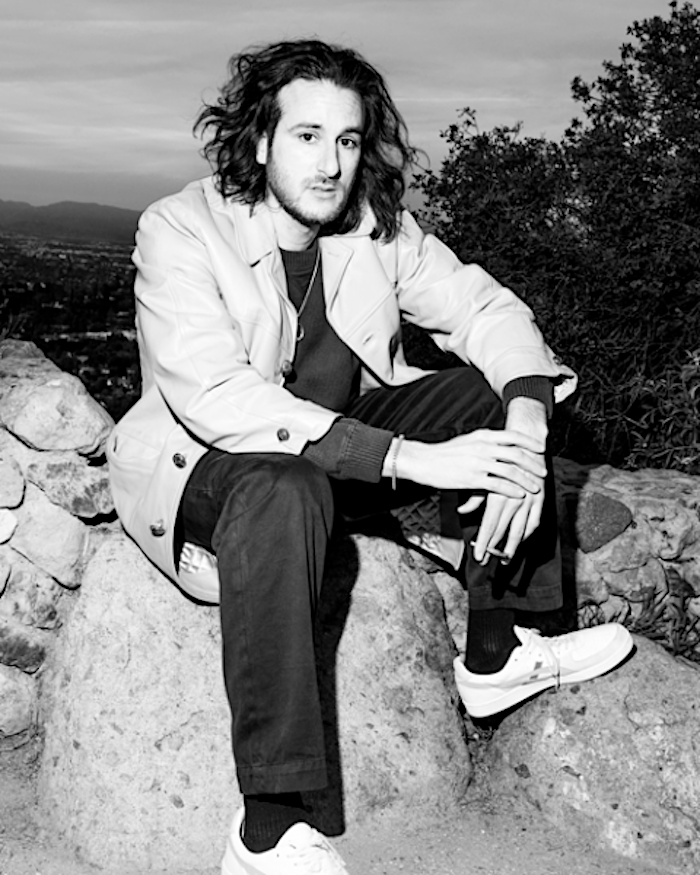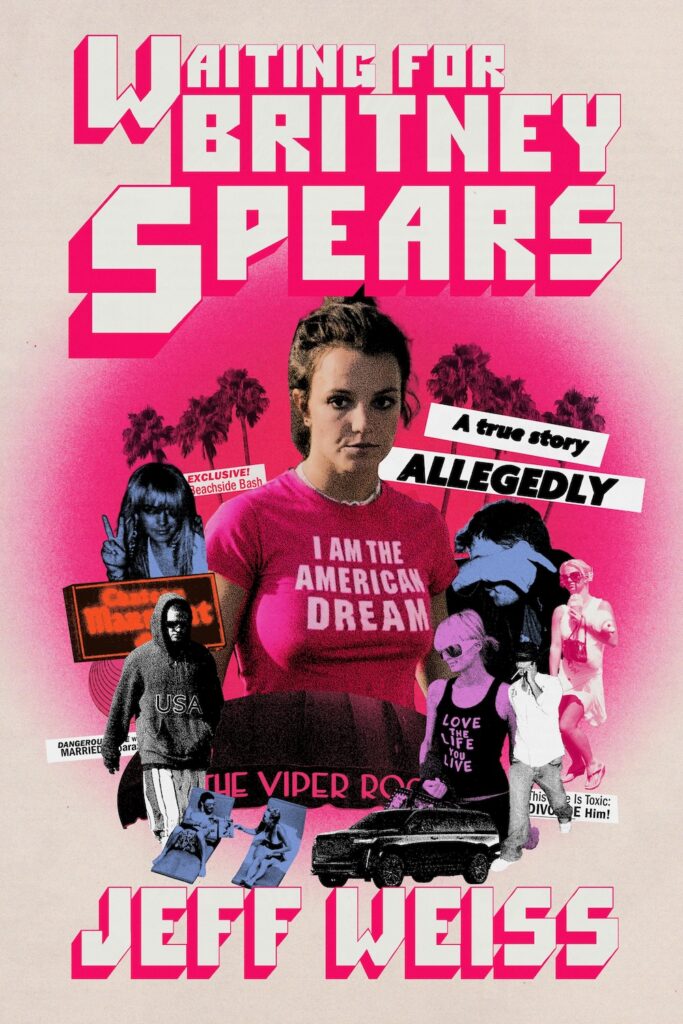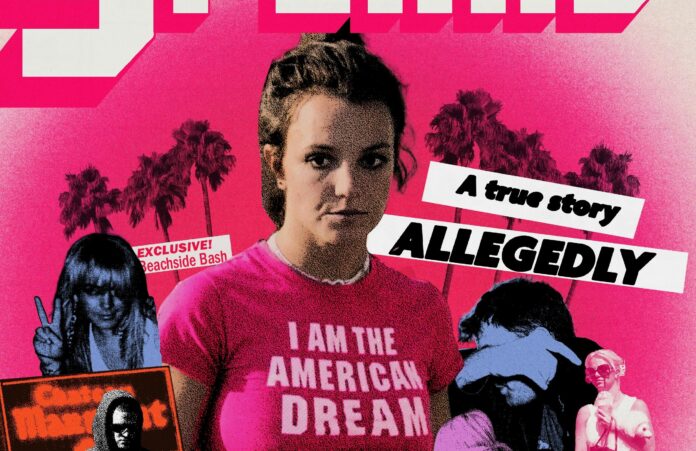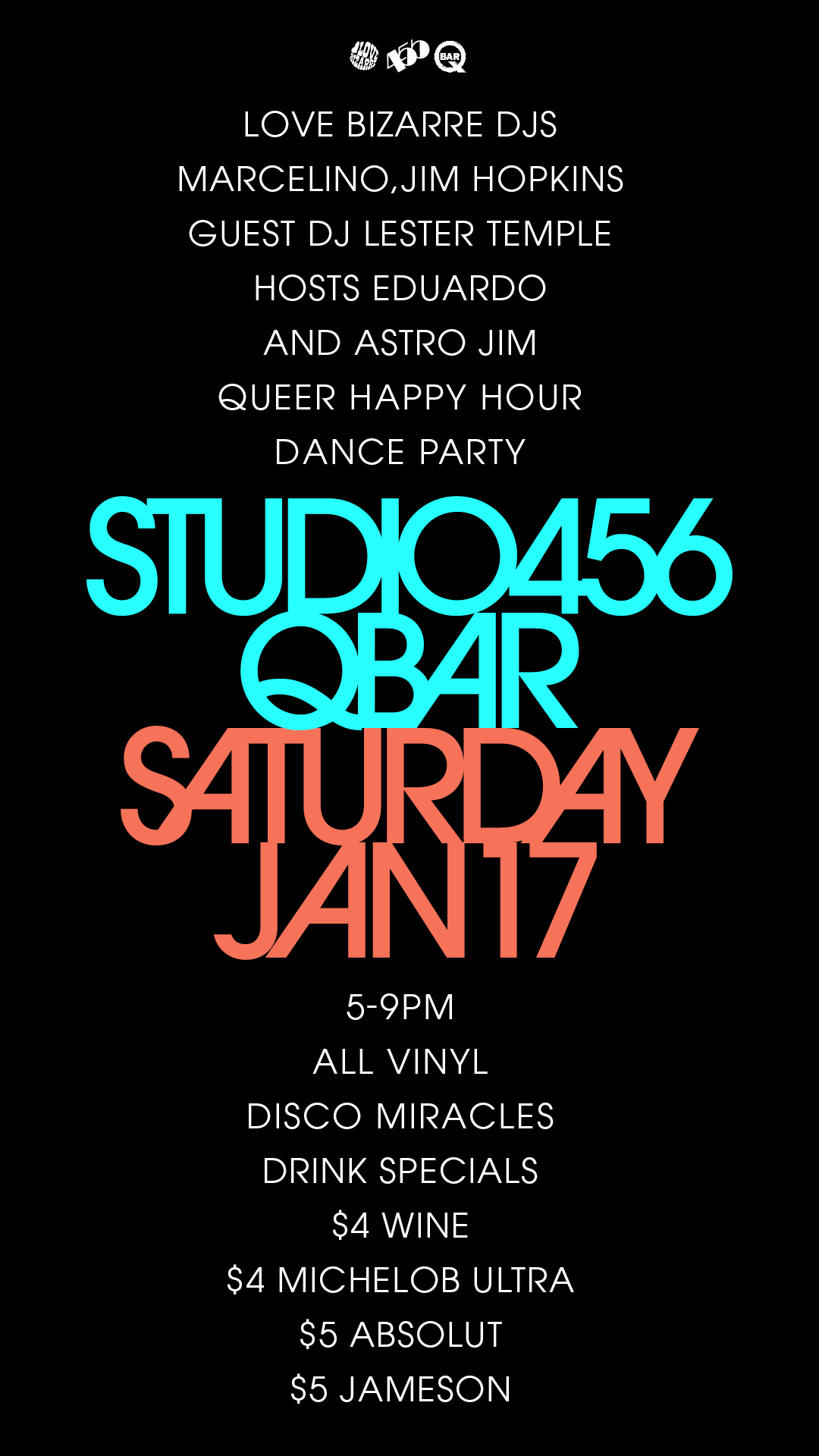The 2000s have been fetishized to no end by nostalgists to whom high-sleaze fashions and prurient celeb-culture voyeurism seem somehow more honest than the prim tenor of the 2010s.
Charli XCX’s album Brat stood at this trend’s apex during the summer named for it last year: a pop album that looked to a time when the world’s biggest celebrities weren’t exalted as moral paragons and proxy Avengers, but instead could be seen stumbling out of clubs late at night, drunk off their ass with makeup smeared on their face. Meanwhile, New York indie rockers have been quick to embrace the cokey hedonism of bands like the Strokes and LCD Soundsystem that partied and fucked in the shadow of no towers, and underground darlings like Erika de Casier and Tisakorean have bent the sounds of post-Y2K ephemera into artsier and freer forms.
Jeff Weiss lived through the peak of that era, and though he admits it’s hard not to feel a little sentimental about the time, he remembers the flipside of it too: the mungy Iraq-era mix of patriotism and paranoia, the awfulness of a lot of the music, and—most crucially to his new book Waiting for Britney Spears—the tabloid culture that made the everyday lives of celebrities fodder for sensational headlines and sitcom jokes. Weiss is now an established music journalist, well-known for his rap site Passion of the Weiss and his tireless reporting on the trial of late LA rap legend Drakeo the Ruler, but he got his start in the trenches of the 2000s tabloid world, and Waiting for Britney Spears is his tell-all.
Or maybe not. In the tradition of ’60s and ’70s gonzo journalism, Weiss is fudgy about what parts of his book are real and which are not, though the rag Nova is pretty obviously a stand-in for Star, where Weiss worked early on. Yet anyone who’s read Weiss’s work should have a precedent for Waiting for Britney Spears’ style. His 2018 excoriation of then-rising star Post Malone for the Washington Post is one of the great pans in music history, and his Pitchfork retrospective on Michael Jackson’s Dangerous vividly describes not just the hard-knocking music of the King of Pop’s great 1991 foray into new jack swing but also the context from which it emerged, in which Michael Jackson might as well have been Peter Pan and his strangeness still seemed harmless.

In advance of a book talk at the Ferry Building, 5:30pm on Tue/15 with local journalists Emma Silvers and Zack Ruskin, we discussed Waiting for Britney Spears over Zoom with Weiss from his LA home. (This interview has been condensed and edited for clarity.)
48 HILLS How do you know Zack Ruskin and Emma Silvers, the local music journalists you’ll be speaking with on Tuesday?
JEFF WEISS I’ve actually never met Emma in person, but we have kind of a mutual solidarity. I did this whole thing against LA Weekly [after they were sold in 2017 and laid off most of their staff, including Weiss], so I became friendly with all the other remaining alt-weekly people. I feel like the Bay has a lot more journalism than LA despite being only like a third the size. You guys have 48 Hills, SFGATE, and the Coyote thing [a forthcoming media outlet co-founded by Silvers] will be really cool. LA really doesn’t have that much, it’s disappointing.
48H This book has been in progress for a while. I understand you put it on hold when you were covering the Drakeo trial.
JW I came up with the idea when all the Britney action [around her stifling conservatorship] was occurring a million years ago, but it took a long time to figure out how to actually write it. I started writing it in 2017, like the first incipient version of it. Very little of it made the final draft. I think I wrote 60 pages throughout 2017. When I finished what I thought was gonna be the first 60 pages of the book, the LA Weekly, where I worked, got bought and sold. I went into war mode to take them down.
I’d done an article on “Oops… I Did It Again” for The Ringer, and an editor had reached out to me and was like, “I really like this article. Are you interested in doing a book about this era in pop culture history and maybe Britney Spears in some form or facet?” And I was like, ”Well, I got something for you.” And she really liked it. Of course, they didn’t buy it. It was a different company than the one that ended up buying it.
I think I’d written like four pages, and then Drakeo got murdered in front of me. That took like two months to recover from. And then finally the second I started to recover, I spent most of that year [2022] away from LA working on the book. It was a perfect way to heal, because it could not have been more dissimilar than what I was writing about with Drakeo.
48H Where did you go to work on it?
JW I started working on it in Big Sur in 2017. Lucas Foster, another person that I mentored and who worked on my website who died tragically, a friend of his mother let me have a cabin up in the mountains above Tahoe. I wrote there for a little bit, which was awesome. I wrote a lot in the desert, out near Palm Springs. I wrote in Lake Arrowhead. I spent two weeks finishing it in Mexico City. And a lot in my apartment in LA.
48H When did you figure out the gonzo approach you were going to use for the book?
JW I think I’m just wired that way. I wasn’t interested in writing a traditional biography of Britney Spears. I think it’s impossible to find the exact biographical truth about what happened. I think that’s a box that has never been opened up and maybe never will be, because so much of it played out in these private court documents. I think the only people that really know the truth about what happened are Britney herself, her immediate family, Kevin Federline, the lawyers, and maybe one or two close friends.
But I also lived a lot of the experience. A lot of the book is fictionalized, but I was working as a tabloid journalist, so Britney was the eye of the hurricane. She was the center of gravity for American culture. I literally found myself waiting for Britney Spears, so it was a natural kind of leap to write in this way.

48H What was the tabloid media environment like at the time? Is there any equivalent to that today?
JW I don’t really know how it is today. All the tabloids are owned by David Pecker, the guy that owned Star magazine. He’s very famous for the “catch and kill” saga with Donald Trump. In terms of what it was like for me to work there, I loathed it. I was a kid and I had a day job as a business journalist for a lot of it. I was trying to claw my way into some semblance of a freelancing career.
I think it was an era defined by its excess and its hedonism and its inability to be honest with itself. The editors, the photographers, the stars themselves, the readers, everybody was engaged in a different form of complicity in their own way. It was definitely the moment where I felt the signs of the death of the American dream start to blink. They start blinking in bright neon at this time, and now it’s a lot more than neon. It’s more like a collective tinnitus and blindness staring us in the face and ears.
48H This era is being fetishized a lot in pop culture right now. What do you think this revival gets right and wrong about this era?
JW Well, I think it’s a refraction. It’s nostalgia for an imagined reality, which I guess is the majority of nostalgia. I found it a pretty grim time. I thought the fashion was hideous. The music was largely bad. People fetishize it because they didn’t live through it, so they’re eliding the unpleasant realities of the situation. There was grim misogyny, it was the era of freedom fries and lying to get into a war with Iraq. I think when you’re wrapping it up in a Spotify playlist, you lose those details. It’s like a shadow version of reality. Everybody every 20 years does this, and it’s natural to feel nostalgia for it.
48 How was Britney talked about at that time, and how much has it changed?
JW I’ve been doing press, and I did a news bit on Chicago news and they were like, “what are the crazy behaviors Britney Spears was known for?” I guess we haven’t learned enough to think that maybe it’s wrong to call it crazy. Let’s say if you do think she was crazy, it’s still kind of insensitive to paint with such a broad brush about someone who was suffering. I think the Olsen twins got it the worst. They were not even 18 years old and Star magazine was charting their weight in every issue, calling them cocaine addicts in screaming headlines. I don’t know how anyone deals with that. They were 17. Britney was not much older than that. She was not capable of defending herself against that.
I think now stan culture kind of provides a buffer to allow celebrities to keep this kind of hatred away from them, but at the time there was no real stan culture, and there wasn’t a way for Britney to post on Instagram. She had to use these media outlets if she was trying to get a message out there. Think of what a vicious cycle that is. A tabloid that makes this outrageous claim against you that may or may not be true—how are you gonna refute that claim other than to go to a different publication? So she would then have to feed into the cycle.
48H I was wondering if you could elaborate on your comment about artists using stan culture as a buffer.
JW Yeah. I mean, there’s a lot of negatives to say about stan culture, but I think that stan culture has infected all aspects of fandom. There’s something that happened in the last 10 to 15 years where we can’t reckon with things as a piece of art. It has to be about the character of the person that’s making it. I think now if you were going to build any kind of fan base, get a parasocial tribe around you so you have your own little fiefdom.
I find it dishonest in a way, but I guess it’s helpful in the sense that the Free Britney people did a service for Britney. I do think they were valuable in getting her free. She did deserve to be free from the shackles of her conservatorship, of course. But then you see stan culture with someone like Kanye West, and it’s obvious Kanye has lost a lot of fans, but at the same time there are a lot of people who are willing to ride with him while he’s doing a “Heil Hitler” song. If you’d said that 15 years ago when “All of the Lights” came out, you’d be like “what dark netherworld have we descended into?”
48H It’s interesting that you mention stan culture as a positive, as something that can protect artists from the hate they get on the internet.
JW Yeah. They’re like bodyguards, but there’s good bodyguards and there’s bad bodyguards. There’s bodyguards where if someone comes near you they throw a forearm block and they tackle you to the ground, and then there’s bodyguards that function as a barrier that’s important for the star to have to not just be picked apart.
48H I feel like the rise of stan culture also coincides with people taking pop music more seriously in the music criticism world. Britney’s Blackout got a retrospective 8.1 from Pitchfork, but they rarely reviewed her music when she was at her peak. Do you see a connection?
JW I think we’ve gotten to the point where pop—well, it’s not taken too seriously, but there’s this misguided notion that critics never took Madonna seriously. People took Madonna seriously, people took Janet Jackson seriously as an artist, people took Michael Jackson seriously as an artist, and these are pop artists. I guess it’s ironic that Justin Timberlake was the one we took seriously as a pop auteur, which I always found bogus. If you’re gonna be honest, which would you rather hear in a club, “SexyBack” or “I’m A Slave 4 U?” Britney’s songs really held up, and I’m glad people treat Blackout as a serious masterpiece.
I think it’s gotten to the point where criticism and stan culture are really conflated. What’s the point of writing a negative review? To get attacked by a bunch of stans for $150? Nobody wants to do that anymore. People just wanna write positive things, and I’m not mad about that in any way, shape or form. I think it was cool that Charli’s album [Brat] got all the attention it deserved. It’s an amazing album. I think Addison Rae being taken seriously is an important thing. I don’t think either of those things would’ve happened without this recontextualization of pop.
One of the initial notions of poptimism was to include rappers too, whereas the white male guitarist was being seen as the end-all of art and rappers and pop stars weren’t. But now I see a lot of people who don’t take rap seriously. There’s a rapper named Skrilla right now who I think is one of the 10 best artists working in music today, and nobody takes him seriously because he’s from Kensington, a slum in Philadelphia that’s known for drug abuse. People say his videos glamorize drug abuse. I think he’s shining a light on it and showing how he’s been entrapped by the cycle. We’re in a sweet spot now where pop music is celebrated as it should be, but rap always gets a short shrift.
WAITING FOR BRITNEY SPEARS Tue/15, 5:30pm, Book Passage, Ferry Building, SF. More info here.






